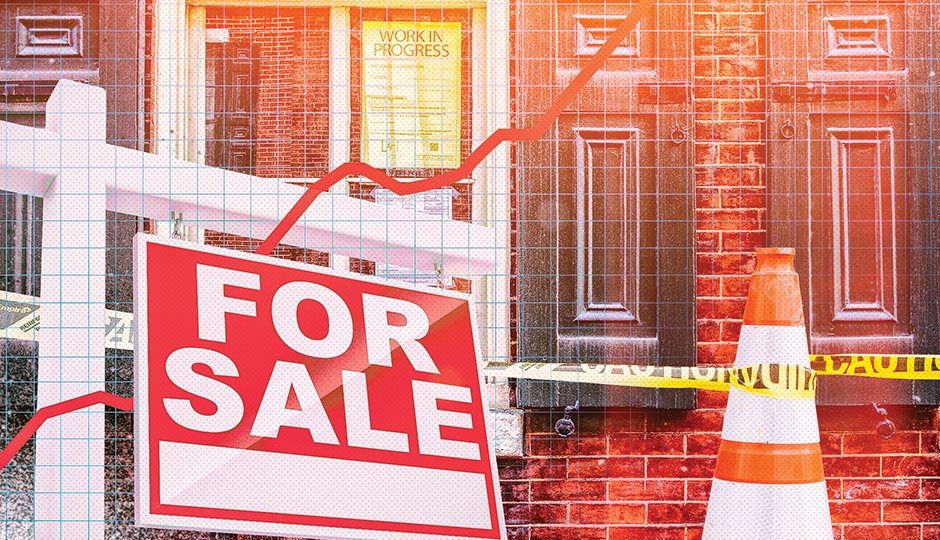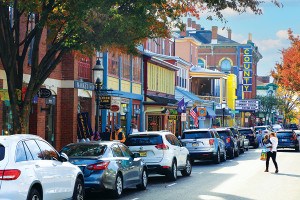Could a “Flip Tax” Put the Brakes on the New Boom?
Take a stroll along West Girard Avenue in Brewerytown and you’ll see a transformation under way. Since developer MM Partners began working in the area in 2001, it’s broken ground on a number of projects, started a street-cleaning program, and attracted businesses to the beleaguered corridor. It’s big-time stuff, but even with nearly $60 million more in investments planned over the next two years, founder David Waxman says MMP can’t do it all on its own: “Having smaller guys doing the one-off homes is a big help.”
Those smaller guys — call them rehabbers or flippers — are behind a lot of the changes in Brewerytown, Fishtown, Point Breeze and other neighborhoods that ring Center City, say real estate industry observers. While speculators buy and hold distressed properties, waiting for a rising market to make their profit for them, flippers instead seek out decrepit buildings on the margins of larger-scale development and renovate them — putting them back on the city’s tax rolls and effectively re-stitching the fabric of neighborhoods between big projects. (Waxman recalls, for example, how 100 to 150 guys doing individual fix-and-flips transformed the Graduate Hospital area.)
In late March, however, the Philadelphia Coalition for Affordable Communities (PCAC) released Development Without Displacement, a report claiming that the increase in home values in parts of North, South and West Philly is accelerating housing instability for longtime residents. The most sobering stat: 52 percent of renter households and 33 percent of owner households citywide were “cost- burdened” in 2012, meaning they were paying so much for housing that they found it difficult to meet other needs. For many in this predicament, the only answer is to move.
PCAC’s solution: “anti-speculation” legislation that would increase the realty transfer tax to 5.5 percent from four percent on properties sold two or more times in a 24-month period. The proceeds, estimated at $12 million based on numbers from 2013, would flow to the Philadelphia Housing Trust Fund, which helps finance affordable housing development and homelessness-prevention programs.
Housing advocate Nora Lichtash, a member of PCAC’s steering committee, says the coalition wants to see market-rate development happen, as it brings in much-needed tax dollars. But PCAC also believes there’s enough money being made on such deals to benefit the public, she says; at press time its representatives had already met with most members of Council and were planning to talk with mayoral candidates to try to line up support.
For all its good intentions, the thinking behind this “flip tax,” as it’s been called, ignores three crucial points. First, fairness: Philly’s transfer tax is already among the highest in the nation. “In general, it’s a good idea to put more money into the Housing Trust Fund,” says Ken Weinstein, a developer who chairs the board of the Philadelphia Housing Development Corporation. (Lichtash is also a board member.) “But if someone is rehabbing, they shouldn’t be hit with more taxes.”
Second, since it usually takes less than two years for rehabbers to fix and resell properties, the tax will fall disproportionately on people adding value to neighborhoods. “Unimproved flips are a very small percentage of home sales in Philadelphia,” says Kevin C. Gillen, senior research fellow at Drexel’s Lindy Institute and chief economist for Meyers Research LLC. “Even if you hate speculators, they’re not really a problem here. It sounds to me as if [PCAC is] advocating a policy in the name of curbing speculation when they really want to fight gentrification.”
Third, and most likely to put a drag on Philly’s boom, a higher transfer tax could discourage first-time buyers from purchasing in the city or, worse, keep them renting. The housing market is still lagging from the Great Recession, and most experts agree that we’re waiting for one particular domino to fall: renters converting into homeowners.
“It is such a win-win endeavor,” James Roletter, a veteran flipper in Fishtown, says of the practice. Usually when he shows up to rehab a property, he says, “The neighbors are wary at first, but when they see you’re doing a good job, they like you. And then when it’s all done, there is some person excited to move into their first house.”
Originally published as “In Defense of Flippers” in the May 2015 issue of Philadelphia magazine.



